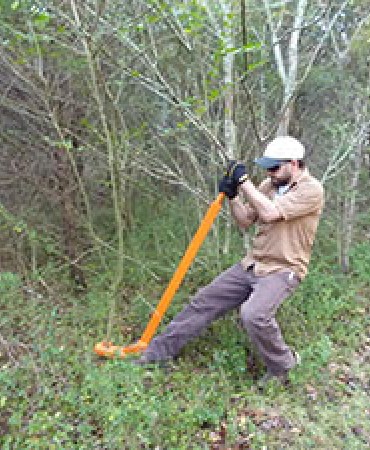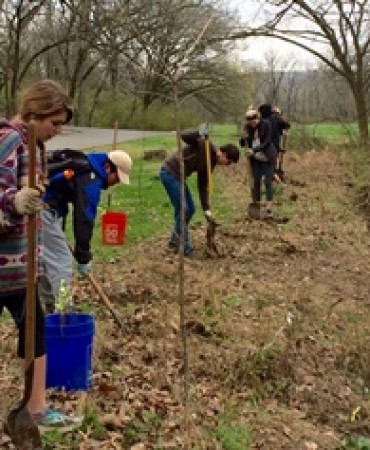The best that nature has to offer in middle Tennessee can be found in Metro Parks Natural Areas… fresh air, sunshine, and healthy activities in the great outdoors. Natural areas in Metro Parks encompass approximately 8,000 acres of forests and meadows, hills and hollows, and rivers and streams to explore and enjoy. The benefits and recreational opportunities found in natural areas are endless… environmental education and outdoor recreation programs, physical fitness, and relief from the pressures of urban living.
Natural Areas
Beaman Park
Located within Nashville's Western Highland Rim Forest, Beaman Park features over 2,100 acres of rugged ridges, steep slopes, narrow moist hollows, springs, streams, and waterfalls. The park’s unique plant communities include Eggert’s sunflower, butternut trees, and “barrens” with glade-like plant species not found elsewhere in the Metro Parks system. Most of the park’s acreage is listed as a Designated State Natural Area under the State of Tennessee Natural Heritage Program.
5911 Old Hickory Blvd.
Ashland City, TN 37015
For further park information email the Beaman Park Nature Center staff at: beamanpark@nashville.gov
Bells Bend Park
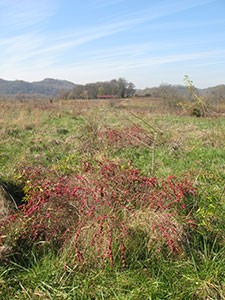
Bells Bend Park is a special natural area with a rich cultural, archaeological, and agricultural history. Located beside the Cumberland River, the park’s varied habitats provide homes for many species of birds including Henslow’s Sparrow, American Woodcock, and Dickcissel. Wetlands enhancements including migratory shorebird ponds are under development on the property.
4187 Old Hickory Blvd
Nashville, TN 37218
For further park information please email the Bells Bend Outdoor Center staff at bellsbend@nashville.gov
Hamilton Creek Park
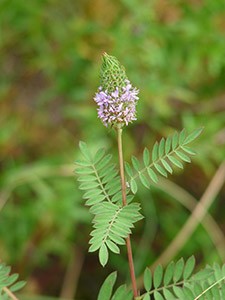
Hamilton Creek Park is characterized by cedar glade-like habitat with shallow depth of soils and exposed limestone. The park is adjacent to J. Percy Priest Lake and contains 790 acres leased from the Corps of Engineers. The federally endangered flowering plant Dalea foliosa, whose common name is leafy prairie clover, is found and protected within the park boundaries.
2901 Bell Road
Nashville, TN 37217
Lytle Bend

Photo credit: Terry Cook
Lytle Bend Park spans around 600 acres and is situated at the confluence of the Cumberland and Stones River, just south of Ravenwood Park. This picturesque area features rolling hills and expansive grasslands. The park is home to a variety of wildlife, including bobcats and butterflies. Currently, efforts are underway to restore the old pasture back to native grasslands.
Peeler Park
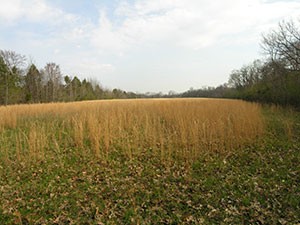
Peeler Park contains approximately 600 acres. The scenic property is located on the Cumberland River in Neely’s Bend. Current passive recreational use includes greenway hiking and equestrian trails, and primitive camping.
2043 Neely’s Bend Road
Madison, TN 37115
Shelby Bottoms
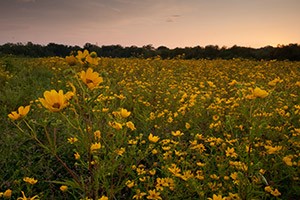
Shelby Bottoms with 960 acres and approximately 3 miles of Cumberland River frontage, is located in close proximity to Nashville’s central business district. The park features bottomland hardwood forest, open fields, floodplain, wetlands, and streams. Many frog species can be heard and seen, and local birders consider the park one of the best locations for bird watching field trips.
1900 Davidson Street
Nashville, TN 37206
For more park information email the Shelby Bottoms Nature Center staff: shelbybottomsnature@nashville.gov
Warner Parks
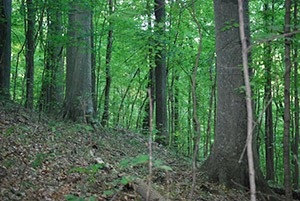
Some of the largest natural areas within the Nashville Metro Parks system reside in Warner Parks. Warner includes 4 unique parks that total more than 3,100 acres. Discover hardwood forests, deep hollows, wetlands hosting American Bullfrogs among tall cattails and meadow blooming with goldenrod in late summer, all less than 10 miles outside the city.
For more information and to begin your adventure, call Warner Park Nature Center at 615-862-8555, or email wpnc@nashville.gov.
- Percy Warner Park: 1225 Belle Meade Boulevard
- Edwin Warner Park: 7311 Highway 100
- Burch Reserve: 7300 Highway 100
- Hill Forest State Natural Area - Accessible by appointment only
Resource Management Projects
- Compliance and enforcement of public use policies
- Invasive plant control and eradication
- Inventory of plants, animals, and natural features
- Prescribed burns and scheduled mowing of fields and meadows for wildlife habitat improvement
- Trail design, maintenance, and sustainability
- Wetlands enhancements
Safety and Security When Visiting Natural Areas
- Be aware and informed of your surroundings. Carry a map when unfamiliar with the area.
- Carry a cell phone. (Note: cell phones may not work in some remote areas.)
- Enjoy natural area parks with a friend.
- Inform family or friends about your visit and expected time of return.
- Learn about and be prepared for potential hazards such as poison ivy, poisonous snakes, ticks, sunburn, and dehydration.
- Lock your car. Take car keys with you. Leave valuables at home.
- Notify Park Police (615-862-8600) to report unsafe conditions or if you observe non-compliance of rules by other park visitors.
- Wear appropriate clothing and footwear.
- Metro Parks Participant Code of Conduct

